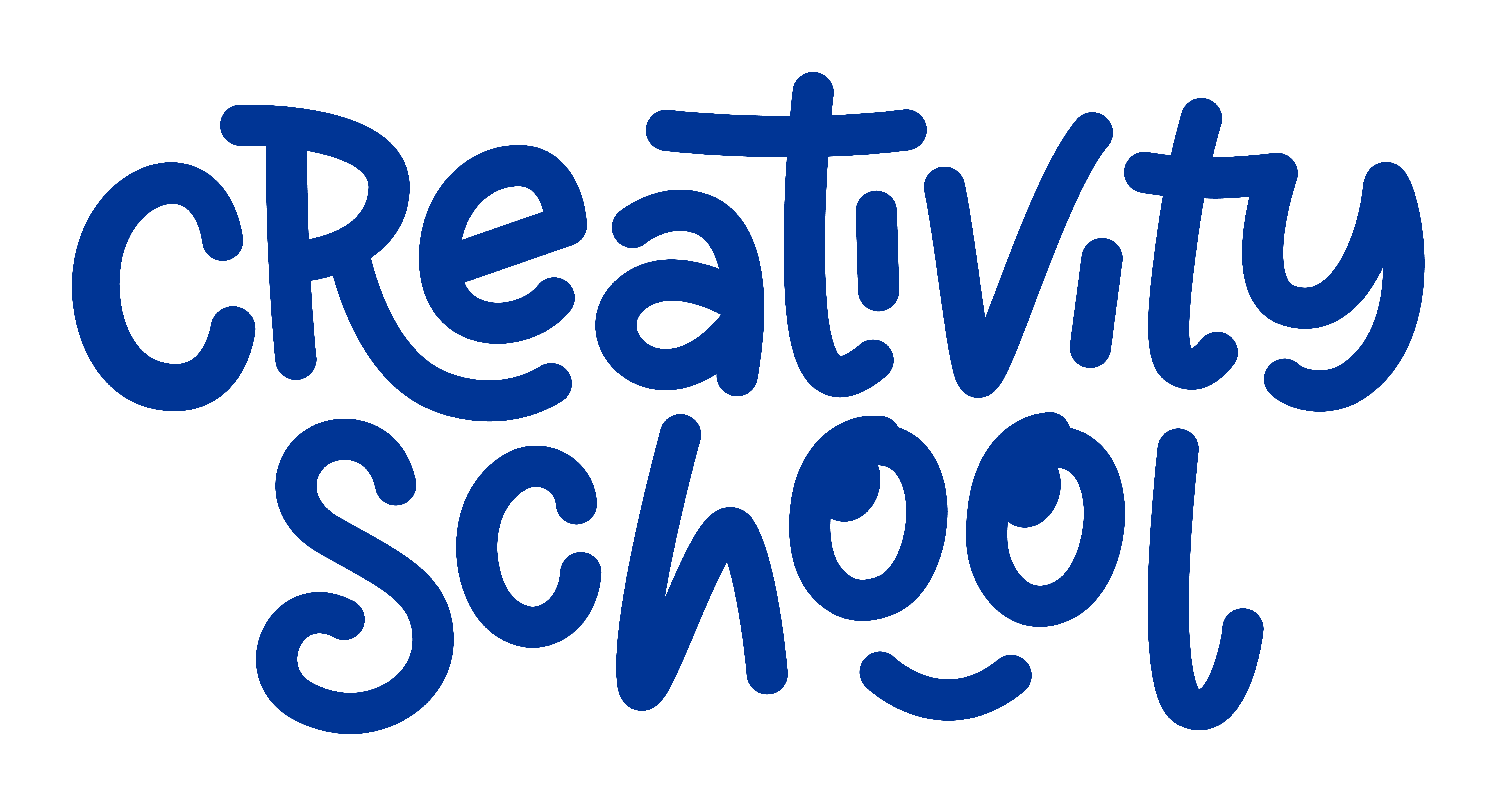National Librarian Day- An Inspiring Interview of the Life of Our Librarians
To all our librarian professionals, Happy National Librarian Day!
For another Creativity School spotlight, we feature four of our librarian friends as we talk about what we love about libraries, some of the things that people assume about libraries, some of the things we wish people knew and anything else under the sun!
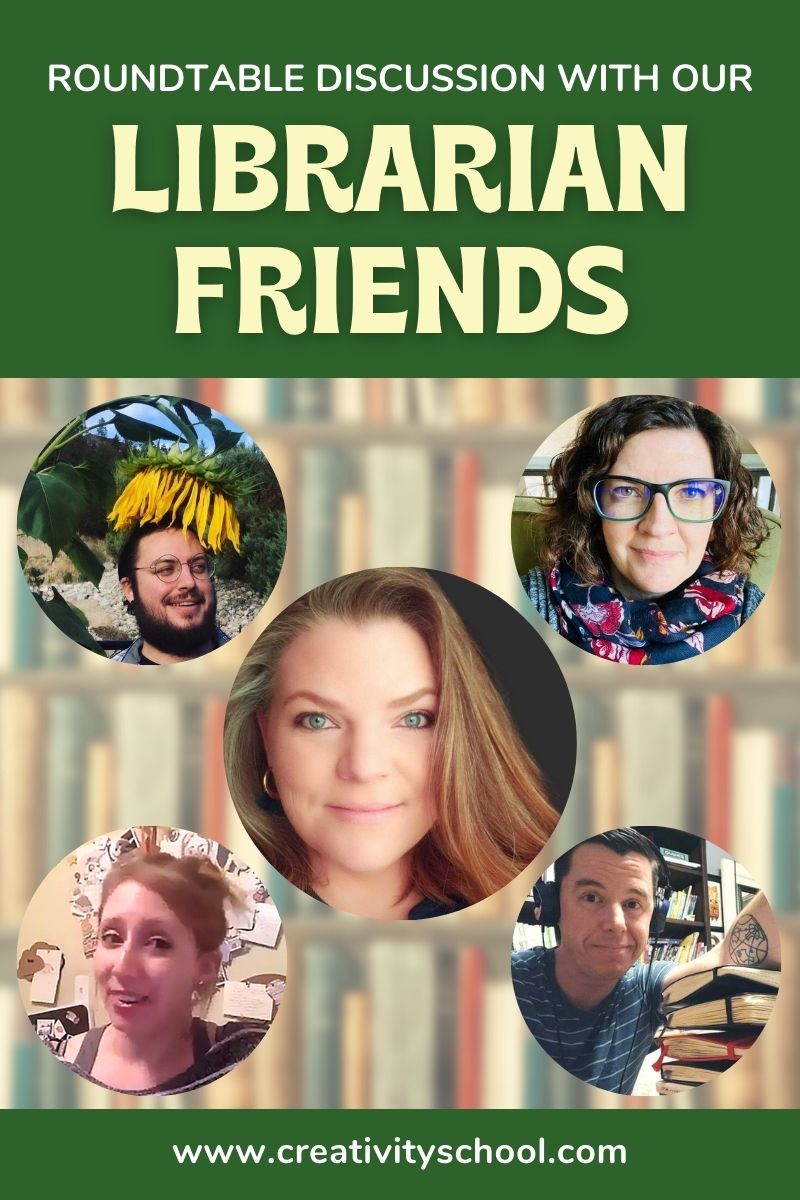
Recent Posts
Table of Contents
Start Your Creative Journey at Creativity School!
Kickstart your child’s creative journey and enhance their artistic potential! Our award-winning artists teach LIVE art classes at Creativity School.
What is National Librarian Day?

The American Library Association (ALA) first founded the National Library Week in 1958, and celebrated every month of April each year. NLW is a time to honor our nation's libraries, as well as the efforts of library staff, and to encourage library use and support.
National Library Week 2021 is on April 4-10 with a theme of “Welcome to Your Library”. Alongside with this, there is also the National Librarian Day (also known as National Library Workers Day) which is observed every Tuesday of the Library Week. This year it falls on April 6.
You might think of librarians as book-slingers who spend their days cataloging and reshelving books, but they play a much bigger role.
Professional librarians are trained in Library Science and use complex cataloging systems to organize books, make library purchasing decisions, collaborate with local schools and universities, plan events and programming, teach classes, and more.
Their role is constantly changing in order to keep up with new technology and social demands. Join us in honoring National Librarian Day and thanking the wonderful librarians who are always willing to help.
Get to know some of our librarian friends as they share their hearts to us in a one-of-a-kind interview.
Enjoy reading!
Getting to Know Our Librarian Friends
Hydi Hoeger: All right. So, Daniel, I'll let you go ahead and get started.
Daniel Klayton
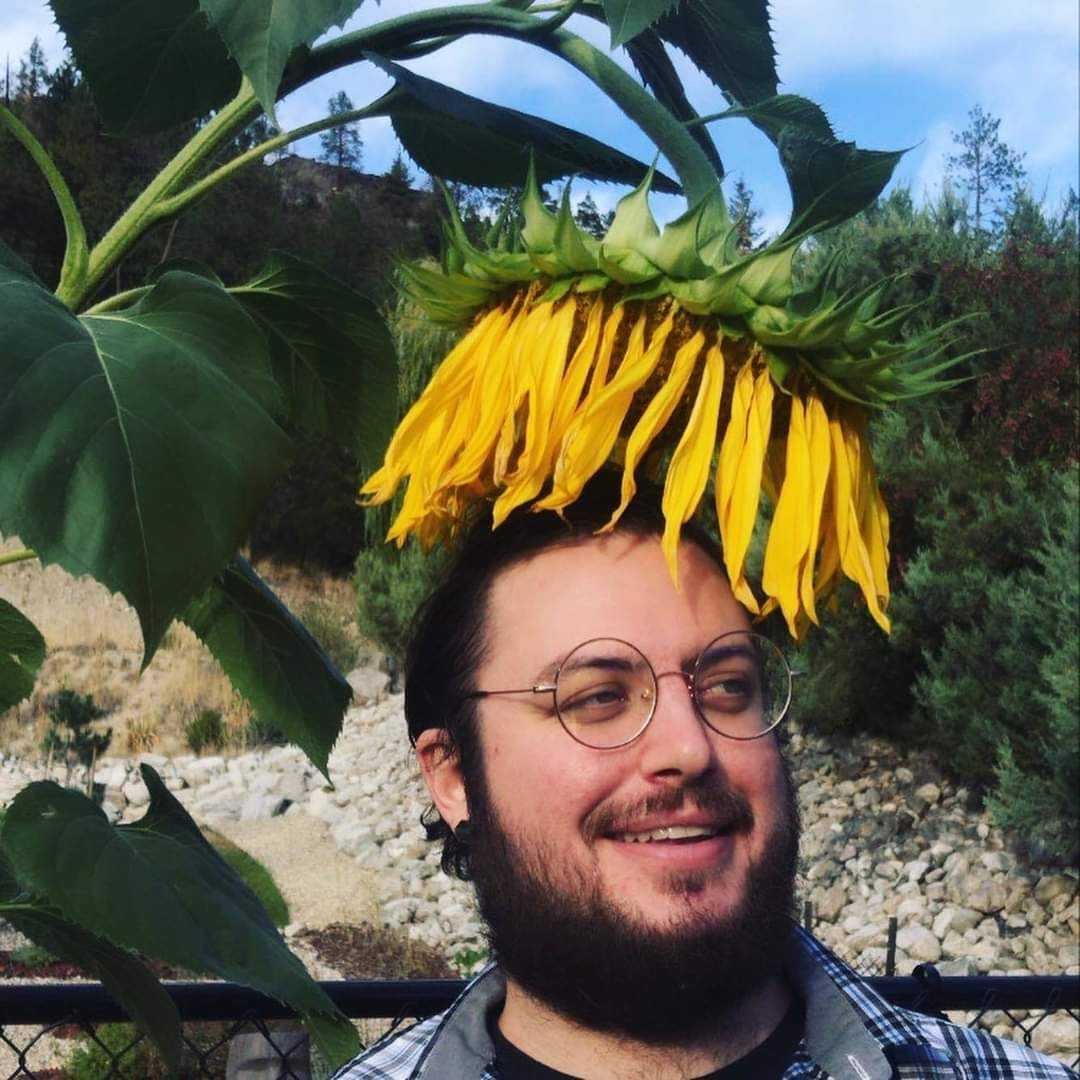
Daniel Clayton: All right, so, my name is Daniel Clayton, and I worked with North Central Washington libraries in North Central Washington. I worked in a couple different roles, mainly as a librarian in a Community Library Public Libraries. I also worked for a while as an area manager to manage and supervise five different public Community Libraries.
Hydi Hoeger: Alright, Matthew. Would you like to introduce yourself to everyone?
Matthew Winner
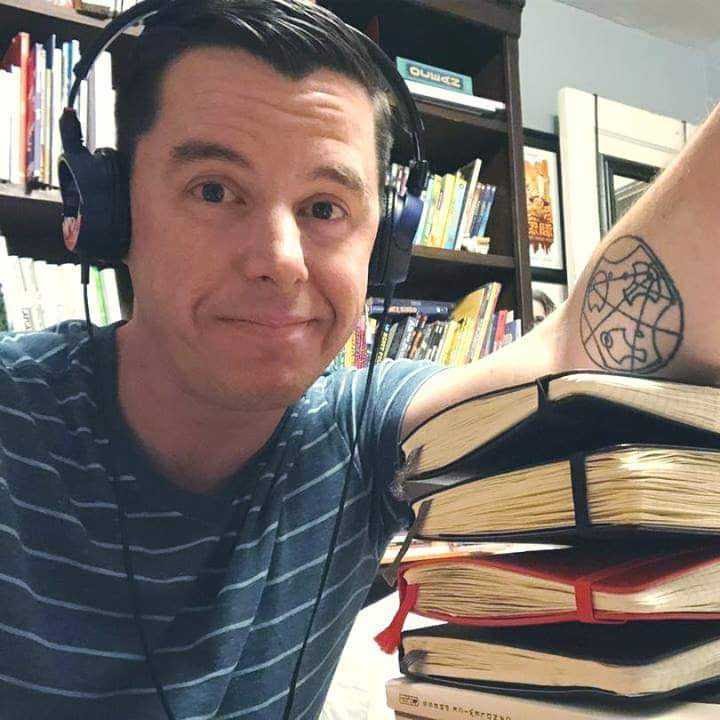
Matthew Winner: Hi, everyone! My name is Matthew Winner. I was a school librarian for 16 years, most recently at McDonogh School in Owings Mills, Maryland. Prior to that, I worked in Howard County, and now very recently, I left to accept the role as head of the podcast at A Kids Book About.
Hydi Hoeger: All right, Erin, would you like to introduce yourself?
Erin O’Connor
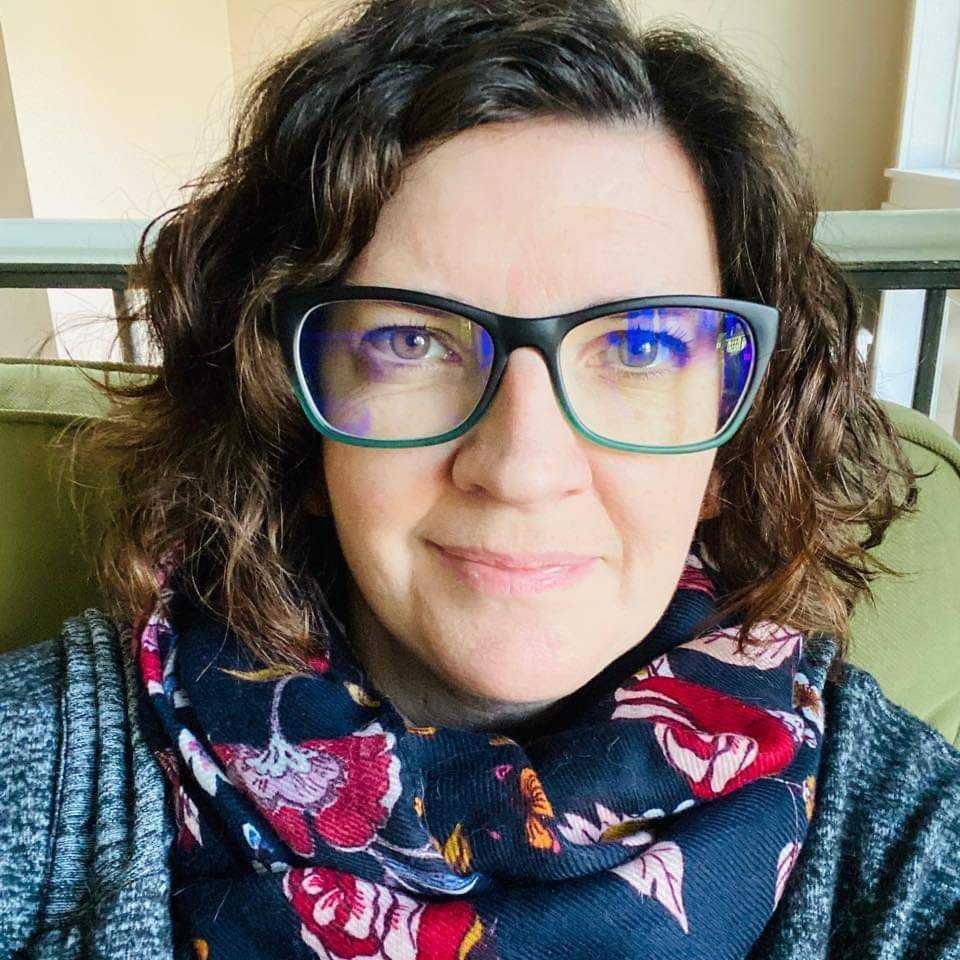
Erin O'Connor: I'm Erin O'Connor. It is my second year as a teacher-librarian at Kellogg Middle School in Shoreline, Washington, the suburb of Seattle, and I love everything about being a teacher-librarian. It's my dream job. I've been in education a long time, but my second year and I only had 6 months with students in a building, so I cannot wait for April 26th when our students will come back to the building.
Hydi Hoeger: All right, Emily. Would you like to introduce yourself?
Emily Wayne
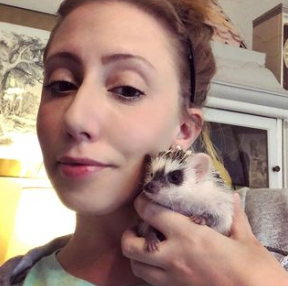
Emily Wayne: I am Emily Wayne. I am the youth services librarian at Westhampton Public Library in Westhampton, Massachusetts, a really small Western mass town. And it is the library of my heart. It's the library that I grew up going to, so now I get to be the kids' librarian. Just really fun!
Hydi Hoeger
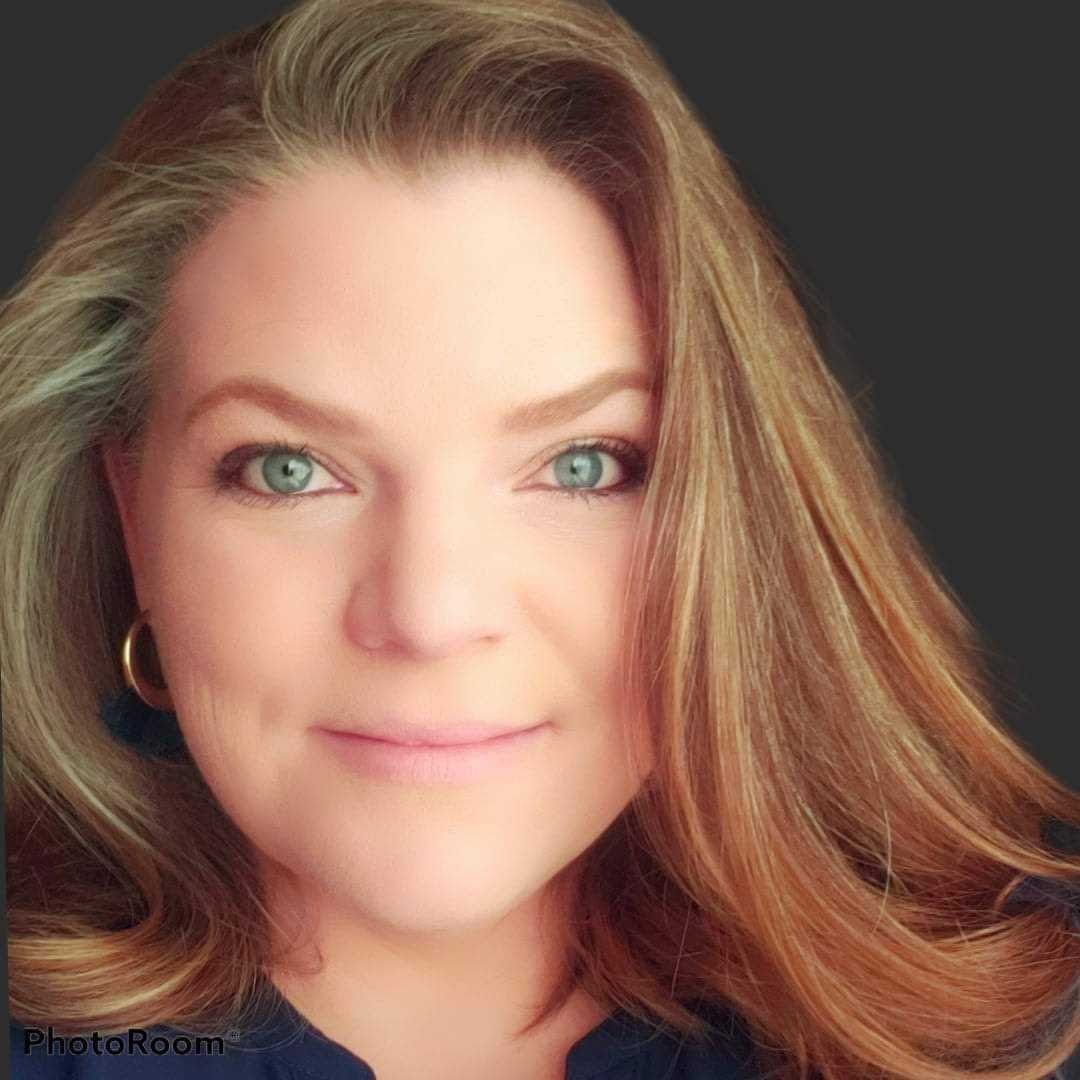
Hydi Hoeger: Alright. Well, I will introduce myself really quickly before we get started. My name is Hydi Hoeger. I'm currently the Educational Director at Creativity School. Still, before that, I was also a librarian for North Central Washington library. I ran a branch in a small town called George Washington, and we served a large Latino population, and it was wonderful. I then switch to teaching. I was an elementary school librarian at Age Lakes Elementary. It was a brand new elementary school in Quincy, Washington, and I got to open the library. I loved it. But I have since resigned because of the pandemic. Being home with my kids and putting them first as the priority and Creativity School also stole my heart.
Hydi Hoeger: All right. I hope that we'll have a great time talking about some of the things that people assume about libraries, some of the things that we love about the library, some of the things we wish people knew, and anything else that might come up. We hope you enjoy our visits and that you have a great time learning more about your local librarian.
Misconception About a Librarian
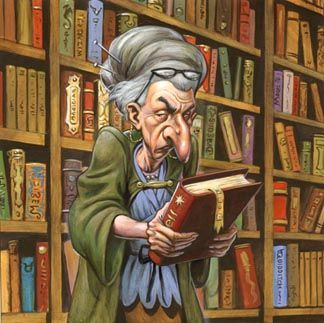
Hydi Hoeger: The first question is mainly about misconceptions about the library and a typical librarian stereotype. This typical librarian is usually cast as a middle-aged, white, doughty, boring female, probably single, divorced, someone who is perfectly suited to live in the library all day and sit around and read and stretch kids. So let's talk about how bad is the furthest thing from the truth.
“Libraries changed with every single generation of children”
Matthew Winner: I think the thing that I want to point out when we talk about libraries is that they've changed with every single generation of children. And so that might have been your parent's librarian. Still, your librarian and your kids' librarian have all been completely different because this field is so rapidly evolving and adapting to center kids and their needs.
“We work against many of those stereotypes because that’s how media portrays them”
Matthew Winner:I think that we still work against many of those stereotypes because I think many media still portrays them. I think the new stereotype will start getting those like, you know, wears clothes made from Etsy *laugh* [Emily was kinda like, you nailed it!], and a whole bunch of tattoos. We have things that I feel like many of these librarians have been like, “Oh, we're all the same.” We all have the same things. Everyone just has the stereotypes wrong. We totally have stereotypes; that's why we're at the library. I feel like the stuff that makes us so different really makes us very, very similar.
Hydi Hoeger: Yeah. Yeah, absolutely true. Working in my library system, we didn't have a lot of variety as far as well. We didn't have a lot of diversity, I should say. As far as you know, our ethnicity, our languages- things like that. I think there are a lot more males in the library system than there were. There's a lot to cover the whole spectrum, and I think that's something that we see represented in the books also, and I think it's an important thing to note. I would like to know a lot more variety in other ways, you know [I'm trying to find the words] [laugh]
“A diverse, inclusive world is not just what they need, but it's what they demand, and we [librarians] need to rise to that.”
Matthew Winner: Maybe you don't need to find the words, though, right? Because we know that these kids that we're serving are products of the world they're growing up. The world that centers their voice and centers the things they care about, and hopefully, we work with children. There is so much about them that we want to make sure that this is the world we're building for them. And so I think that a diverse, inclusive world is not just what they need, but it's what they demand, and we need to rise to that.
Role of Librarians in a Child’s Representation and Development
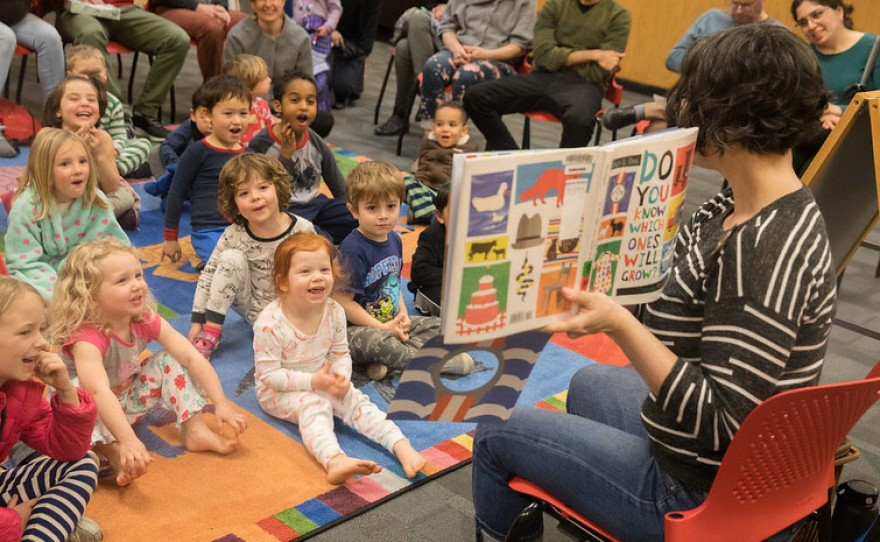
Hydi Hoeger: I think one of the reasons I love the library system in the books and everything is I want children to identify themselves. I want them to see themselves represented in every way possible, not just in the books but also in the people who visit them. The people who run it, you know, I want to see them be comfortable and discover that they are not alone ever.
“Kids would come in to find a safe space in libraries”
Erin O'Connor: One of the things I love about being a teacher-librarian is the social-emotional aspect of it. Time immemorial, kids would come in to find a safe space in libraries. Still, being a STEM future-ready librarian is having these activities in the libraries that kids can foster their social and emotional skills. And so, like last year, I had Mindful Mondays, where we did a bit of a meditation session. Then, I had Tinker Tuesdays, where we had the Makerspace stuff out. And people in my school thought this was very strange, like why the librarian has the Makerspace. But this is what my library program taught me the kind of librarian to be if you're future-ready. And so I think that's a newer type of librarian. It's something that I'm pleased about because I love creating those activities and ways for kids to engage in creativity, even if it's coloring or arts, and then anything STEM-related. I really love that aspect.
“The librarians are very hands-on in helping to create those connections between the world and me”
Hydi Hoeger: So one of my roles in running my library was that it was very heavily populated with immigrants, people who were either there only for a season or people who were coming to stay, and many of them worked in agriculture. And they had to leave their kids. So the kids would come to the library, and in addition to having patrons who were adults, I also have patrons who were children. The majority of them were children, and you know that they were in that safe space to make sure that they were receiving the things they needed to enrich their lives. Makerspace, I wish that we had it when I was a kid, you know, I remember going to the library, and they had this huge caterpillar that I would lay out, and I would just read, and I loved it. But if they have something like Makerspace, that really would have propelled me, helps me find my interest even earlier, and exercise your mind. Yeah, I love that libraries are doing that now. Then the librarians are very hands-on in helping to create those connections between the world and me.
Libraries core purpose: enrichment and connection

Daniel Clayton: Yeah, I think you know in one sense, it feels like in that way libraries are doing a new thing, something that we might not have seen in libraries over many decades ago. But I also think it's an expansion of libraries' core purpose: enrichment and connection. Access to books, information, and resources is part of enrichment, which creates a place of discovery. But so are these programs like Makerspace and arts and STEM, everything in STEM. Same with connections, as librarians, helping to connect people to the books they're looking for, the books they might not know that they're looking for, but will be their next favorite read, and help people connect with one another with their communities. Helping people to connect with other services that they might use.
“I don't remember it [libraries] being especially quiet, or my librarians were just very lenient. But yeah, I think a place to explore and, as you said, find information.”
Hydi Hoeger: Yeah, that's great. I think you know that the idea that librarians “sssh” people all day is that libraries are very quiet places. I remember a Mr. Bean episode where he walked on the floor *squeaked*, and then there was this whole comedic routine. But that is not at all the library that I have experienced. As an adult, but even as a child, I don't remember it being especially quiet, or my librarians were just very lenient. But yeah, I think a place to explore and, as you said, find that information. I know some libraries check out ties. That we provide people with the things they need for free [unless you have overdue library books] [laugh] and then even that's negotiable depending on the system.
Hydi Hoeger: I remember being so afraid. I have a library book that was so overdue, and I'm so afraid to go to the library because I couldn't find the book and It was due and I was so scared. And now, you know, we would like our books back. We do, you know that there is a cost to check ER to have books and check in the amount at people. We want to keep it circulating, but many library systems have moved on to forgiving these fines and overdue. I mean, you don't get DOC for having a book over to you anymore. Emily?
Emily Wayne: I don't think we'd ever done fines at my library. I can't remember having penalties as a kid, either. We're really leaning toward people, especially now during the pandemic. I mean, you know, it is what it is, and we want people to have the books, [and obviously, we want them back.] But if it takes you a little longer to read it or give it back, or whatever, it's okay.
Matthew Winner: You know Emily, I noticed the same thing when I was in the school library. That delicate role that librarians play that I gave grades in the elementary school library, and it was like, you know if I'm going to grade you in the library. I have the power to turn you off from reading forever with that grade and also how important really are those grades. Constantly thinking of the child or the adult that is in the circumstance of needing to pay a fine, or you lost a book, or you're dealing with whatever. I think that trying to honor the individual and honor their dignity as much as we can, is something many people in our profession are talking about. I think that's a place for us to be that I can put this on the right side of history [all human beings if the human beings are on that side of history]. So, yeah, I'm with you, Emily. It's super rad that they never charged fines. I love that!
Emily Wayne: You know, my town is also incredibly small. The town population is like 1400, and library persons are probably two-thirds of that. So it's a very small community, and everybody knows everybody. But yeah, we've never done fines. We're very lenient with people. If you lose a book, it'll not automatically put whatever fine on to your account that this is how much it says in the system at the book cost. We'll tell people you know what, “Just buy a replacement on Amazon; it's this much on Amazon, all we want is the book back, it does not matter how much you spend on it. “
Erin O' Connor: We do that, too.
Emily Wayne: Yeah, we want to keep people using the library – have no barriers.
Matthew Winner: Well, most of my career, I worked at Entitled 1 schools, and the number of kids would be from families that move a lot [which is something that happens]. You're moving across the county or throughout the neighborhood because of whatever your housing situation is. We were always sensitive to that at every turn. One of the ways we also met those families where they were is that the libraries, in general, are great about not ever talking about other people's private information. So I never publicized what books were out or lost or whatever. That was not anyone else's business except for the person who had the book, but what we would do is have it in exchange for canned goods. If you can't find your book, bring a canned good, and we will donate it to the local food shelter and help somebody else out. In that way, we'll wipe your fines. You're showing the responsibility; you care; you want to do something. You just can't do this one thing; you could do something else. In doing good, paying with goodness is a much better act for us to adopt than fines or some sort of financial rules or something.
During the pandemic
Erin and Hydi shared their memorable stories as librarians during the onset of the pandemic.
Erin O'Connor: I wanna share my story about a library book overdue. An eighth-grader emailed me recently, and she was like, “I have this book at home from the Kellogg library and read it a few times. I don't think I'm going to need it next year when I go to high school. So, how can I get that back to you?” And I was like, “Oh, thanks for checking in and letting us know that you borrowed the book, and we'd love to have them back.” [laughing]
Hydi Hoeger: I'm glad you're done with it. Yeah, just speaking of the pandemic. I remember [and Erin and I are in the same state. So I think we experienced kind of the same thing]. It was announced at the end of school on a Friday, and they said you have one day. Our school district allowed us one day, so Monday, we went in. Like the entire staff, we camped out almost over the weekend, preparing everything that they could think of what was initially six weeks, you know of a break. Like I turned you know, we say don't judge a book by its cover, but covers are important. Kids love book covers. They love the colors. They love the pictures that tell a lot about the books., So I remember I laid out every book on the tables. I've turned every book around in my library. There was nothing stacked. There was no spine showing. It was all covers, and the kids walked through, and each got to check out like I think it was 6:00 we checked out. I think it was close to two thousand books in one day, and I had paraprofessionals. I just called them paras. They came in, and they helped check out and bag and get these little kids ready for students. And then they canceled school. For the rest of the time, there was a big discussion about these brand-new books. We just opened this library, about $60,000 brand new books. There was very little left in the library, and there was a big discussion about what to do. In the end, we lost a lot of books. But you know, those books are in someone's home and I would rather they be in someone's home than not used at all.
The Role of Library and Librarians in Diversity
Hydi Hoeger: All right, well. I would like to talk about the elephant in the room. If you look at our panel, we are all white. Luckily, we're not all the white, doughty females [thank you, Daniel and Matthew, for being here] [laughing]. We don't fit into this one mold now. We are very different, even though we are all white. We're all very different from each other. We would like to see a lot more representation from other ethnicities, other cultures, and just other belief systems than the ones we have. I think every child needs to see themselves represented. And for me, our community is mostly Hispanic. But that does nothing for the child. He/ she is afraid that they won't fit in or afraid they're not going to find what they're looking for on the shelves. For me, I would really like to see more diversity in the library system itself. And I know that it has been a place that not a lot of people feel like they can fit in. In the past, you needed a Master's in Library Science. There are very few colleges that even offer that anymore, to my knowledge. Still, I think it's an issue that we are working to overcome, but it's very slow, and Matthew, you were telling me a bit of how that came about. Would you mind just educating us really quickly?
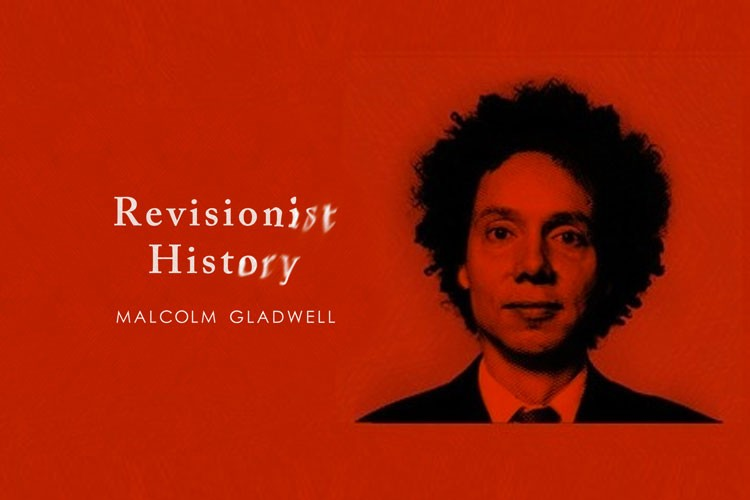
Matthew Winner: This is education care of Malcolm Gladwell's The Revisionist History Podcast. An earlier episode tells about the history of the [Brownian] board of education. When the nation moved to end segregation of schools, all of these African American teachers were looking for jobs in these newly integrated schools. It is sometimes widely discussed. Other times, never discussed. Because people don't like to talk about bad things that white people have done in history. But those teachers were unfairly evaluated against their white colleagues. Most of those black schools are higher-performing than the neighboring white schools. Still, they evaluated the teachers so that those teachers were deemed ineffective and weren't given jobs. All black and brown children went to school with these predominantly white teachers, if not all white teachers. We lost all of those African American teachers. And what that does to communities is when you have been in families that have grown up in educator families.
White teachers need to collectively work to decenter themselves, white librarians to decenter themselves to allow someone else to have a chance.
Suddenly the national school system is saying that you aren't welcome here. You're no good. That cuts out that line of black and brown educators, and that's something that we, as a nation, just have never recovered from. Education is not a space that welcomes black and brown teachers. Librarianship is not a space that welcomes black and brown teachers. [We would like it to be], but we need to work with a great deal more intention and make it a space that welcomes black and brown individuals and people from non-Christian religions, queer people, differently-abled people. There's an awful lot of people left out of the story. It takes effort to bring those people back into the story, not just like these individuals applied to our library program or our school system. We need to actively seek out those individuals to work against the system that has kept them out for so long. So our children don't have that luxury, [I don't even want to call it a luxury at all] that they are going to school. They need to have the luxury of seeing themselves in their teachers. That is something that white teachers need to collectively work to decenter themselves, white librarians to decenter themselves to allow someone else to have a chance.
“If you're going through something, whether an identity crisis, whether you don't find yourself represented culturally or religiously, whether you are afraid to speak up, or going through a mental health crisis, you should feel like you can always go to your librarian.”
Hydi Hoeger: You know, I think one part is, you know, we're not looking to fill a quota. We were looking to fill an actual need that children have that patrons have. I think a lot of us work with children, but this goes for older patrons, too. If you're going through something, whether an identity crisis, whether you don't find yourself represented culturally or religiously, whether you are afraid to speak up, or going through a mental health crisis, you should feel like you can always go to your librarian. I think that's really important for libraries. I say this, and I know my fellow librarians, that most of them are very, very warm. They will do anything to help some get through something privately, you know, they will use their resources to help them through whatever they need, you know, but I think we need to see that represented more accurately. Still, it is something we speak out about.
“I want the students to have mirrors of themselves in books, and windows for the other students who do not know very much about a certain culture or religion or identity.”
Erin O'Connor: Yeah, I think it's kind of like the books that we have in our library that we choose to curate. Do we have stories about people of color or certain cultures written by white people, or do we have books written by voices who have lived experience in that? As a queer person, I know that I've impacted students in my school because I'm out. I have a wife and two kids, and I know that they can see themselves reflected in me. I want that to all of our students. At the very least, for them to have mirrors of themselves in books, and windows for the other students who do not know very much about a certain culture or religion or identity.
“We're serving everyone equally, but like Erin and Matthew are saying, if all of the books in storytimes are featuring white characters, or if all of the librarians look a certain way, or live a certain way, or come from a certain background, then even if the doors might be open to everyone, we're not creating a space that serves everyone in the same way.”
Daniel Klayton: I feel like sort of librarianship break whole or at large is in this process of moving from a focus on equality to focus on equity in the past. You know, there has been a sense that will open our doors to anyone to come in. We're serving everyone equally, but like Erin and Matthew are saying, if all of the books in storytimes are featuring white characters, or if all of the librarians look a certain way, or live a certain way, or come from a certain background, then even if the doors might be open to everyone, we're not creating a space that serves everyone in the same way, that you know that creates a space where everyone – young or old, whatever life experience sees themselves or can find themselves reflected and valued and honored in the library. I think I know it's something that our library system was exploring its ways. If there are folks who aren't frequenting our libraries as much you know, what can we do, or what aren't we doing now that isn't serving them, and how can we adapt? How can we grow? How can we evolve the types of books? The types of programs that we have? The types of languages that our librarians speak to reach those folks and serve our whole communities equitably and not just equally.
Hydi Hoeger: Yeah, that's great! Thank you, Daniel! I kinda listen to the next topic that we had, which was in our place in the community. Library services are one of those things that we know everyone has access to. I remember George Washington is located along the freeway, and we would get a lot of transients. I love helping them come into the library and find what they need. It was very satisfying to me to be able to help somebody. In your communities or school systems, what are some of the needs you're feeling, and what are some of the responsibilities you have?
“We must make those spaces and model those tolerances for everyone to be welcomed and for the intolerance to not be, to just be a stopping point”
Matthew Winner: I think, as Erin said, it's critically important that our kids see their identity as welcome and valued. I, too, Erin, think about how I walk through this world and how those queer kids and queer family see me and know me right away as a friend and family.
“I feel like today's librarian is really fierce. Be fiercely fight for kids. Be fiercely fight for them to be seen and to be valued, and that's uncompromising.”
We must make those spaces and model those tolerances for everyone to be welcomed and for the intolerance to not be, to just be a stopping point. I feel like today's librarian is really fierce. Be fiercely fight for kids. Be fiercely fight for them to be seen and to be valued, and that's uncompromising. I think education was me butting heads with other educators because I was fighting for the kids and because I wasn't going to flinch. I think that we see that in libraries because so much reading and being in that space is about identity. So many of us in the library profession are there because we want to be seen. Because somebody saw us, and that's why we were here in this profession. That's why we won't leave because we know that that visibility is critically important. It just makes me forever grateful that we're part of this community. I love Erin that you're not letting along because, as you say, you picture the kids, don't you? I'm like, “You know all about me, child, and I know all about you, and we are here together, and I'm not going anywhere.”
Erin O'Connor: And I think that so many people get validation from books. If you are not validated by your own family or community, you can read a book and see yourself. You can feel like there's somebody else like me, and if I've never seen that, I think that's so important. I love that many books are now written about queer people, especially middle school and elementary school level books. Not just young adult books, and it's so important, and I can see that reflected from the students that I teach. I'm the GSA advisor at my school, and I can see that they have read these books and like, you know that their identity is strong at such a young age and so cool.
Hydi Hoeger: Regarding the more controversial topics, have you received a lot of negative criticism as a librarian?
Matthew Winner: First of all, Erin, can we just take a moment to affirm this book? Do you know this book? This is the Stonewall Award winner this year, “We Are Little Feminist Families.” It is a board book of photos of real families really in love. There's something that's like *gasp* Your mommies and daddies wouldn't have liked to see this. My mommy and daddy would have been like, “Na ah.” It shows same-sex couples in bed. Happy. Intimate. How beautiful is that? Come on. Anyway, I was sharing a picture book with my whatever student, probably with the whole school.
It's a book about gender by Theresa Thorn called “It Feels Good To Be Yourself.” This book is about pronouns and gender identity. At one point, you mention gender being so minutes determined when you were born because it is. A doctor looks at you and says you have these parts. I'm going to check this box for you. Done. Parents also do this because we throw gender reveal parties before the baby is even born. We declare what the baby's gender is. But a child questioning this [which is great], in the library, “Mr. Winner said that doctors determine if you're a boy or girl based on what they see,” went home, ask parents, “Is this true?”
Parents are like, “What are you learning in the library?” and parents send an email to my principal. [I say this smiling], because it turned out parents were like, We're so glad you did this. We did not have a conversation. We were just curious where she learned it from”. The principal came in and was not happy and proceeded to talk to me about how she didn't feel that the kids were ready. But that was a developmentally appropriate conversation to be having with children. And I said we develop identity at 3 or 4. I know it's developmentally appropriate, and she was pushing back on that.
Matthew Winner: And I said, “But I've been doing all of these Credits Start King work for this past month. Do you have a problem with that work?” And she's like, “No, that's completely different.” So what I podcast to everyone listening is, “How possibly could talking about racial justice and police violence and brutality [which I also talked about with my K-5th graders]; how is that okay for me to talk about it, [maybe because it's of the moment?] But it's not okay for me to talk about when you are born, a doctor checks a box to say you have this genitalia and therefore are this gender or this and therefore you are that. Blows my mind! There are people that still just aren't ready. They don't know how to talk about it, but unfortunately, they are in positions to stop everybody from having these conversations. Just because you're not ready does not mean everybody else isn't ready, especially at the hands of someone who knows how to have these conversations.
“Not addressing that [current] issue will leave so much more damage.”
Hydi Hoeger: Yeah, and I think you hit a really important thing. You said that the child took that information, and that child is the one that processed it. You opened the door to that idea; you know that you know, this is how things are done. But it was that child. Clearly, that child is ready for those discussions, and not addressing that issue will leave so much more damage. You know, where is she going to find that information if you don't talk to them about it, and they're already wondering.
“Not the kids aren't ready, not the kids aren't thinking about it, not the kids aren't aware of it, but that it's the adults who are uncomfortable or don't know how to approach certain difficult conversations.”
Daniel Klayton: I think so often when we say kids aren't ready to talk about XYZ year or this topic of discussion, or we need to wait until kids are a little older, what we're really saying is, we as adults don't know how to have that conversation with kids. Not the kids aren't ready, not the kids aren't thinking about it, not the kids aren't aware of it, but that it's the adults who are uncomfortable or don't know how to approach certain difficult conversations. I think a great and growing trend in children's literature and family literature is a material that specifically helps foster those conversations so that adults who might feel like, “I don't know how to have this talk about this topic with my six-year-old,” you know can have some support in and creating that dialogue.
Erin O'Connor: Yeah, I agree. I think books are huge in that way. There's this book called “Not My Idea: A Book About Whiteness.” I believe it came out just last year. When I read it, it was just an amazing way to have those kinds of difficult conversations about police brutality in about what's happening in our country, and black lives matter with very young children.
Emily Wayne: There are a lot of really amazing books coming out now that are dealing with the full spectrum of all the difficult things that we did last, and it's so wonderful to see. My community is not very diverse. But I am still making it a priority to make sure that I have all of these books that Center all of these different people you may not see in your community. But you're going to see them in the library.
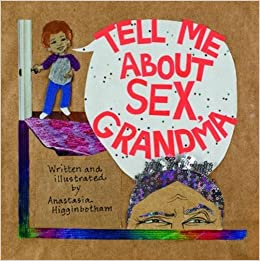
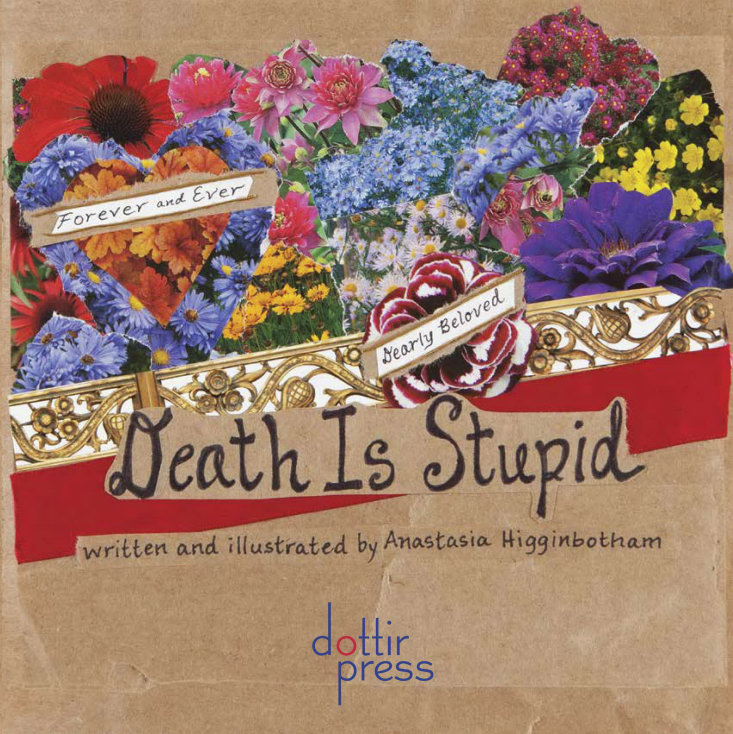
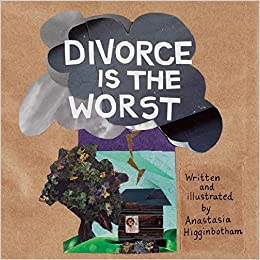
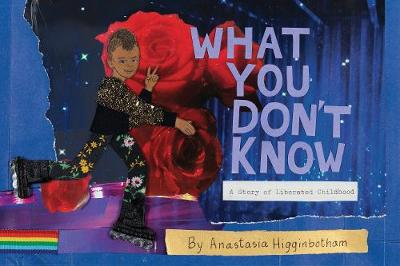
Matthew Winner: Can we do a quick shout out at “Not my Idea's…” written by Anastasia Higginbotham. She has several books, including “Tell me about Sex, Grandma,” “Death is Stupid,” “Divorce is the Worst.” Her latest book, Erin, if you have not read her latest book, it will blow your mind. It's called “What You Don't Know.” It's a story of a liberated childhood. It's phenomenal. It centers on queerness. It centers on separated parents that get along. It centers on the way that allyship, perceived allyship, can actually hinder identity. It's a beautiful, beautiful book, exceptional. It has black Jesus in it. It's amazing. You'll love it!
Hydi Hoeger: So Emily. I have a question for you. Just a follow-up. Do you do storytime with the kids and everything? Do you use any of these materials? And if you do, you know our parents present, what is the response that you get?
Emily Wayne: It's a hard question because it's such a small community, and I think I have about six months at the library before everything shut down. So, yeah, I didn't have a lot of time getting into things before and even when I had people coming in person. It was maybe three or four people, and so throughout the whole pandemic, I have one devoted family that does storytime with me, and they are a wonderful family. They are very open about everything and talking about all different things that are difficult subjects, so it's very easy for me to bring those things up with them.
Hydi Hoeger: Interesting! That's good to know. I was just curious. You know, that feedback from the community can be a wonderful thing, or it can be a very hostile thing in my experience. I've had both. I remember getting a call from a very angry mom when the book talked about a vagina, you know. It was a cultural thing, they're celebrating the period, and this mother was just so angry. She wanted that book taken off, and I think I reached out to Matthew actually, and I was like, so what would you do in this situation? And you know, and I was very professional about it. I said, here's a form for you to fill out the I need you to read this book, and you know, if you can read the book and let me know all the parts that I know you don't believe in, the library will forward it on for a board will have a board meeting about it and you know, it takes a lot to ban a book. Still, for me, it was very much like you have an opportunity to learn about another culture, another way of life, a way of celebrating the female body and all of its wonderful and horrible things. You know that we also need to be talking about. But you know, for me, it was like you just crossed the line with me. It was very hard for me to be professional, and I felt that personally for a moment, you know. Still, then I went through my emotions, and I reached out to Matthew. I reached out to my principal and a few other people, and you know, we came up with this plan that this is what we were going to do, and she never wrote back, you know?
Emily Wayne: I have not had any pushback from patrons, but we try to be neutral about a lot of things because the library is a big part of anybody's town, but as there have been all these things happening in the world, we've been trying to genuinely put up statements that we don't support hate. We have our resources to learn about the black community. The only thing I can think of at the time when there was only one person [who wanted to remain anonymous]. I don't even know who it was, but I did my first summer reading program last year. I did it, A Summer at Hogwarts, and I was just about to roll it out when JK Rowling started making her troubling statements. And so I made a post that I signed as myself, you know, not as the library that this is why I'm doing this program, This is what Harry Potter was meant to me. Still, you know, we don't condone her opinions, and we don't support hate and all of that. Then it was one person who pushed back. However, it was inappropriate for us to make a statement as a library because there might be people that felt differently.
Erin O'Connor: I haven't had the challenge yet. It's been only a couple years since when the pandemic hit. It'll be important if it happens, you know to you know, say that you know that the books are for everyone in the school. While it might not be something that you want your child to read, if it is parent-challenging, that's fine. Your child doesn't have to read the book. That's your choice. But we can't omit it for everybody in the whole school. That book could be the one thing that really helps out a certain child in the school.
Emily Wayne: Yes, I agree. If you're uncomfortable about the books, you can select books for your own children. But we have to provide books for everybody.
Hydi Hoeger: Yeah, and I think you know, I think that's an important thing to like children need to be able to pick out their own books. They need to pick out the books that resonate with them, you know, that filled their needs. I think I've made it clear to the parents, my patrons of my students, that if they have a problem with a certain book's morality, they need to discuss that at home, you know. They need to establish boundaries between them. I am not a moral judge; I never will be. I never want to be that person. You know, who says this is not appropriate for you, you know, if you are interested in it, I'll describe it, it is yours. And I think that also I mean it goes with all the very sensitive topics or controversial topics. Still, it also goes with, you know, just reading levels—things like that. So, you know, if I have a first grader who wants to check out Harry Potter, go for it go look at the pictures. I know for me as a librarian one of the greatest, and this is like my mission was to, you know, ignite in every child that I could, this love of reading. I have so many students who would come in and go, “I hate the library,” “I hate reading,” This is the worst, “This is boring.” But by the end, they will go like, I've read this book, and I love it, and where do I find the next one? Where do I find more of this author? And you know that to me was probably the most satisfying thing, that to help students find that thing for themselves.
Erin O'Connor: That graphic novel, that manga book *laugh*
Hydi Hoeger: Yes, I know! Whatever it is! [smile] Alright, we have had a great discussion today. Thank you, everybody, for coming. We hope that you feel more comfortable finding something for yourself in the library and that you visit your local libraries and thank you, everybody, for coming.
Everyone: Thank you so much!
Watch more of the roundtable discussion here:
Creative Kids Live
- Celina G.
On Demand Class
—Miao
